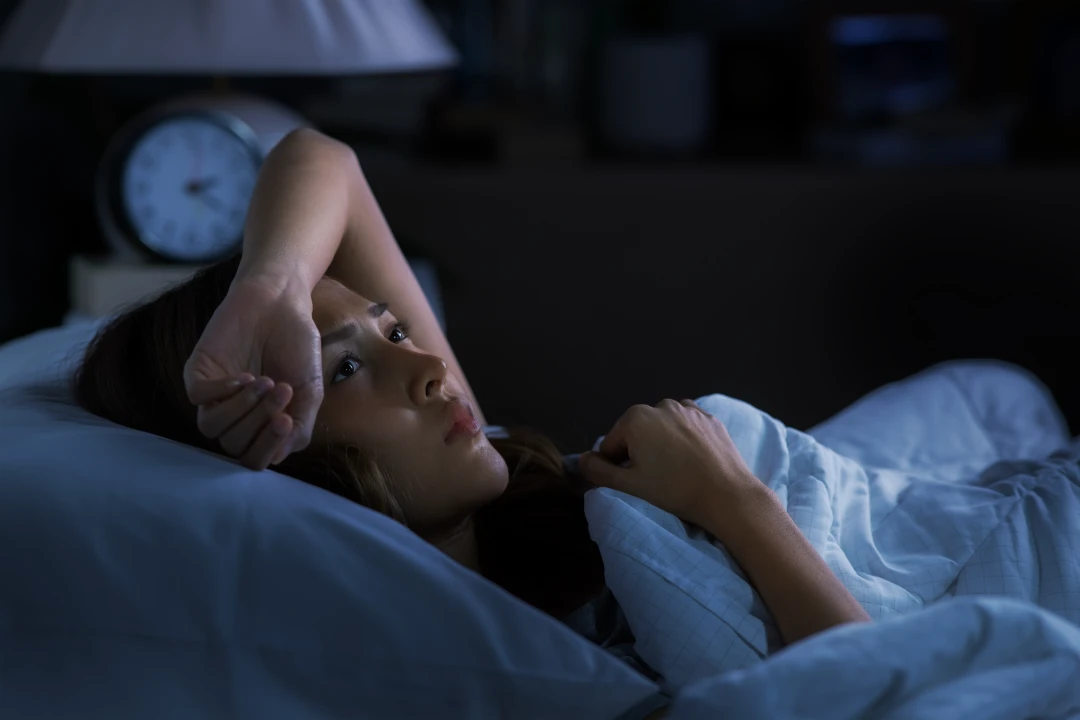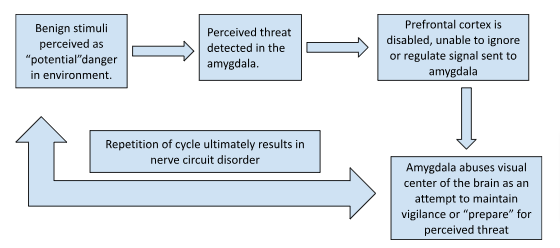Anxiety
Anxiety is an emotion that can be understood as the bodily response to a potential threat looming on the horizon.
What is anxiety?
Anxiety is an emotion that can be understood as the bodily response to a potential threat looming on the horizon. Occasionally, it is also referred to as a condition caused by one’s imagination. Anxiety anticipates a potential threat, whereas fear is the emotion induced by an immediate threat.
Anxiety, like many other negative emotions, is an important aspect of human evolution. However, when it persists for an extended period, it can develop into a psychological disorder known as anxiety disorder.

Particularly in Singapore, anxiety disorder is one of the most common mental disorders, with an estimated 10% of the population struggling with it daily. Anxiety disorders in adults can be detrimental as they may severely impact their ability to execute responsibilities and even create dependencies on other adults for survival, thus affecting their ability to become independent. Types of anxiety disorders include:
| Generalised anxiety disorder | Generalised anxiety disorder is the persistent (for over 6 months) and excessive worry or fear that interferes with one’s daily routine. Patients with this condition may hyper-fixate on issues in life even if worry or fear is not necessarily warranted. The looming dread of a potential threat significantly impacts their quality of life. |
| Panic disorder | Panic disorder is generally characterised as repeated episodes of panic attacks. Unpredictable physical and psychological symptoms may accompany these attacks. Patients with panic disorders describe panic attacks as akin to heart attacks. The lack of predictability surges further worry as one may perceive a “loss of control” in one’s life. |
| Phobias | Phobias are intense fear over a specific object or situation. While not all phobias require medical intervention, some phobias, for example, aquaphobia (fear of water), could significantly impact one’s ability to conduct their daily routine, such as showering. |
| Agoraphobia | A form of fear that inhibits patients from leaving an environment they deem safe or joining a crowded space. When left untreated, the severity of the condition may lead to patients never leaving their homes or rooms and completely isolating themselves. |
| Social anxiety disorder | Patients with social anxiety disorder tend to be overwhelmed with anxiety or fear in social environments. In other words, the interaction with people may cause extreme discomfort, fear or anxiety to the extent one consciously avoids people and social environments. |
| Separation anxiety disorder | Separation anxiety disorder occurs when a patient develops anxiety when separated from an attachment figure. This form of anxiety disorder can cause strains in relationships or inhibit one from forming healthy social bonds. |
| Selective mutism | Selective mutism in adults may manifest as an inability of patients to verbalise themselves in situations when highly anxious. Whilst may be dismissed as “shyness”, selective mutism may pose an issue as patients may psychologically “shut down” and have difficulties communicating when they are required to (paralysed during a meeting or presentation). |
What causes anxiety?
Particularly in Asian communities, psychological disorders are conveniently dismissed as an “attitude problem”, “shyness”, or even “stubbornness” or “arrogance”. However, strides in the field of science have proven that anxiety disorders are biological limitations that occur in one’s body, subsequently manifesting itself in reality. Below is an illustration depicting the biology of anxiety:


Essentially, it can be surmised that anxiety disorder is the neural disorder between the amygdala and prefrontal cortex, which are parts of the brain responsible for signalling threats. However, the dysregulation is not simply limited to the brain. When left untreated for prolonged periods, anxiety disorder will begin to present physical symptoms as one’s body begins withering from continued “mis-circuit”.
What are the symptoms of anxiety?
Like many other psychological disorders, one cannot visibly “see” the damage occurring in the brain. However, anxiety disorder will present itself physically as:

- Increased heart rate: an elevation in heart rate after exercise or a stressful situation is normal. However, if your heart rate remains dysregulated for hours even after said situation resolves, this may be a sign of trouble. If your reaction is to ruminate over the situation or possibly a future threat resulting in continuously elevated heart rate, this is a signal of your body failing to return to “stasis”. In patients with anxiety, elevated heart rate continues for months, subsequently impacting one’s general health. Individuals with a higher heart rate are at an increased long‐term risk for cardiovascular issues.
- Nervous stomach: patients with anxiety disorders tend to suffer from stomach pains and indigestion. In the state of anxiety, one’s nervous system signals the gut and intestine, triggering the muscles involved in digestion to go into a “fight or flight” response. This reaction may present as nausea, cramping, bloating, or diarrhoea.
- Unhealthy food consumption: patients with anxiety may also develop unhealthy eating habits, either by overeating or undereating. Subsequently, this opens doors to other psychological disorders, such as binge eating or anorexia.
- Changes in libido: patients may experience a reduced sex drive as a result of excessive worry. On the contrary, one may even become hypersexual as a means of avoiding discomfort caused by anxiety disorders.
- Bodily aches and pains: the constant state of anxiety may result in patients being tense, in which muscles in the body are always in a state of “contraction”. This may result in your body cramping, hurting and muscle weakening over time.
Am I anxious, or do I have an anxiety disorder?
Knowing when to seek medical intervention can be tricky. In a “hardened” society like Singapore, people struggling with anxiety may struggle to validate their condition and refuse to seek help unless intervened by a loved one. But how do you know if the sense of anxiety is a phase that will pass or will continuously worsen?
- Time has not healed: if the anxiety you feel has been worsening and persistent for 6 months, this is an indicator that you may have an anxiety disorder.
- Day-to-day routine is impacted: if basic elements of your daily routine, like eating, sleeping or maintaining self-hygiene, are affected, it is a sign that anxiety is now interfering with your quality of life.
- Reduced social life quality: if you find maintaining friendships and relationships nerve-racking and consciously seek to isolate yourself to feel at ease, you may be suffering from an anxiety disorder.
- Reduced work performance: the most common reason patients seek professional help is the looming fear of losing their jobs as they can no longer perform at work or struggle to maintain focus and concentration.
- Body starts withering: patients also seek help when there are no signs of physical ailments, yet their body shows signs of shutting down.
If you can relate to at least half of the signs above, seeking professional help will give you the tools to reclaim your life. Our experts will guide you meticulously to regain a sense of normalcy and live an anxiety-free life.
Who is at risk of anxiety in Singapore?
Some people may be more prone to anxiety disorders compared to others. Risk factors include:
Unresolved childhood trauma or negative experiences
Many adults carry unhealed wounds from their childhood into their adulthood unconsciously. One such example is over-attachment to a parental figure in childhood, which translates to attachment to a romantic partner in adulthood.
Exposure to a stressful/negative experience
As an adult, you may have newly experienced a situation that triggered a sense of fear. The inability to come to terms with the said situation may then progress into a constant state of anxiety and then an anxiety disorder due to prolonged conditioning.
Genetic factors
Some studies have shown that genetic factors can impact the likelihood of being diagnosed with anxiety disorders. Thus, a biological relative with anxiety disorder will consequently increase your chances of developing the condition.
Other mental health disorders
Having a prior diagnosis of conditions such as clinical depression and post-traumatic stress disorder will also increase the likelihood of one developing anxiety disorders.
How is anxiety diagnosed in Singapore?
Our medical doctor and senior psychiatrist will assess you during your visit to our clinic. This assessment would include identifying potential risk factors, gauging the severity of your condition and examining any physical symptoms you may be presenting.
During your first consultation, you may be required to answer a series of questions relating to your condition. These question sets are also known as diagnostic interviews to ensure you are accurately diagnosed, and an appropriate treatment plan can be curated specific to your condition and needs.
What are the treatment options for anxiety in Singapore?
Depending on your specific condition, you may be recommended one or a combination of a few different modes of treatment. Each patient’s recovery will be unique as there is no one-size-fits-all solution for anxiety disorders. Some examples of treatment provided at our clinic include;
Behavioural and talk therapy
Includes evidence-based psychological treatment, such as cognitive-behavioural therapy. Talk therapy is essential in guiding patients to reframe their thought patterns and providing a safe and confidential space to express inner conflicts.
Medication
If necessary, you will be prescribed psychiatric medications, specifically anti-anxiety medication. Our service does not stop at prescription; you will be monitored and assessed to determine the efficacy of the medication and overcome side effects if any are present.
Collaborative care
If patients request or authorise third-party involvement, we will work with individuals of your selection to help you in your journey of recovery
Frequently asked questions
I am seeking help for someone I care about but don’t quite know how to approach the topic of them seeking professional help; how do I convince them?
Asking a loved one to seek professional help can be tricky and sensitive. This is especially true when the disorders they struggle with are not blatantly obvious. Here’s an article on convincing a loved one to seek psychiatric help. Remember, intervention must be done with consent, or you may face the risk of increased resistance.
I don’t think I have an anxiety disorder; I am just anxious about a situation, but it is impacting me quite severely. Do I still need to visit a mental health professional?
Imagine a patient with a persistent cough. While their lungs may not be severely impacted, left untreated, it can open doors to a myriad of other issues. Even if you perceive your condition mild, your mental health is worth investing in to prevent your condition from further worsening. Under the hands of a professional, the severity can be contained, and your recovery can be expedited. Mental health is just as important as your physical health.
Can my insurance cover treatment at the clinic? Are there better options than private healthcare?
It is best to consult with your insurance provider if your coverage can subsidise the cost of treatment. We understand that private healthcare can be expensive; please reach out if your financial situation inhibits you from obtaining professional help. We will do our best to explore available resources to suit your needs.
Can I be cured of an anxiety disorder?
There are cases where patients become equipped to handle anxious feelings and situations to the point it does not progress into a state of disorder again. In other cases, the severity of their condition has made it necessary for long-term mental health support. Anxiety, at the end of the day, is a feeling encoded into the human species. While you can’t completely erase emotions, there are ways for you to manage and regard them as equals to other emotions effectively.

Reach out towards recovery
Readily available help
There are numerous resources catered specifically for young adults, including counselling services at colleges and universities, and employee assistance programs (EAP) at many workplaces.
Confidentiality
We respect your privacy—any discussions you have with us are kept strictly confidential.
Holistic wellbeing
Your mental health matters just as much as your physical health. Taking care of your mind is a crucial part of your overall wellbeing.

